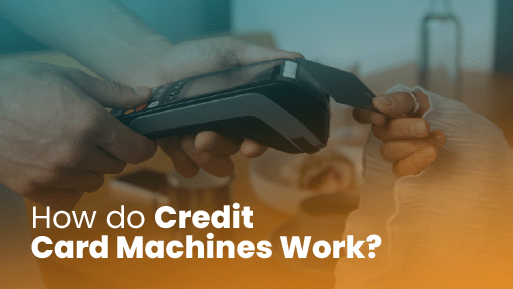In today’s marketplace, accepting card payments isn’t optional—it’s essential. But figuring out how credit card machines work can be confusing if you’re not sure where to start. The good news? You don’t need to be a tech expert to get it right.
This guide will walk you through how credit card machines work, the different types available, and key factors to consider before choosing one. By the end, you’ll feel confident picking the right solution for your business.
Key Takeaways:
- A credit card machine is a device used by merchants to accept card-based payments, often integrated with a point of sale (POS) system.
- Various types of terminals exist—wired, wireless, and cloud-based—each suited for different business needs.
- Choosing the right machine depends on compatibility, transaction fees, and integration with inventory and sales systems.
What is a Credit Card Machine?
A credit card machine is an electronic device that allows businesses to accept payments from debit or credit cards. It reads information via chip, swipe, or tap (NFC), connects to a payment processor, and finalizes transactions.
These machines are often part of a point of sale (POS) system and can be standalone or integrated with inventory, customer management, and reporting tools.
How do Credit Card Machines Work?
Credit card machines process payments in a sequence of steps that happen within seconds but involve multiple parties—banks, card networks, and processors.
Credit Card Authorization
The cardholder taps, swipes, or inserts their card. The machine collects the card data and sends it to the processor for verification. The issuing bank checks for available funds or credit and approves or declines the transaction.
Payment Submission
Once authorized, the merchant’s payment terminal sends the transaction details to the payment processor. These are usually grouped in a batch to streamline processing.
Batched Settlement
At the end of the business day, the terminal sends the batched transactions to the processor, who submits them to the appropriate banks for settlement. The funds are then deposited into the merchant’s account within 1-2 business days.
There are cases where disputed charges or fraudulent activity delay the process of transferring the money to the acquiring bank, but these are rare exceptions.
Security Features in Credit Card Machines
Modern card machines include encryption and tokenization to protect sensitive cardholder data. EMV chips and PCI compliance help prevent fraud and maintain customer trust.
Connectivity and Speed
Credit card terminals can connect via Ethernet, Wi-Fi, or cellular networks. Wireless options are ideal for mobile or outdoor setups, while wired terminals often provide faster, more stable connections for high-volume businesses.
Integration with POS Systems
Many credit card machines work seamlessly with POS platforms like KORONA POS, streamlining sales, inventory, and reporting. Integration with your current POS system is key for accurate financial tracking and ease of daily operations.
Payment processors
giving you trouble?
We won’t. KORONA POS is not a payment processor. That means we’ll always find the best payment provider for your business’s needs.
How a Credit Card Transaction Works (Step-by-Step)
Understanding each step of a credit card transaction gives clarity on processing times and fees.
Step #1: Card Is Presented
The customer pays via chip, swipe, or tap.
Step #2: Authorization Request
The machine sends the transaction data to the processor and the cardholder’s bank for approval.
Step #3: Approval or Denial
The issuing bank verifies funds or credit availability and sends back an approval code or decline message.
Step #4: Transaction Is Stored in Batch
Approved transactions are stored for end-of-day batching.
Step #5: Settlement
The processor sends the batch to the acquiring bank, which then forwards it to card networks and issuing banks. Then, funds are transferred to the merchant.
What Are the Different Types of Payment Terminals?
Credit card terminal technology has changed rapidly, meaning your store has plenty of options and varying cost of credit card machine setups. Check out the choices below to determine the best fit for your store:
Traditional, Wired Credit Card Machines
Traditional terminals vary in size and style but usually include a small screen, PIN pad, and sometimes a signature pad. A wire—typically an Ethernet cable or telephone line—connects them to the system.
For the easiest use, connect the terminal to your point of sale to process payments and log sales in your inventory and reporting system.
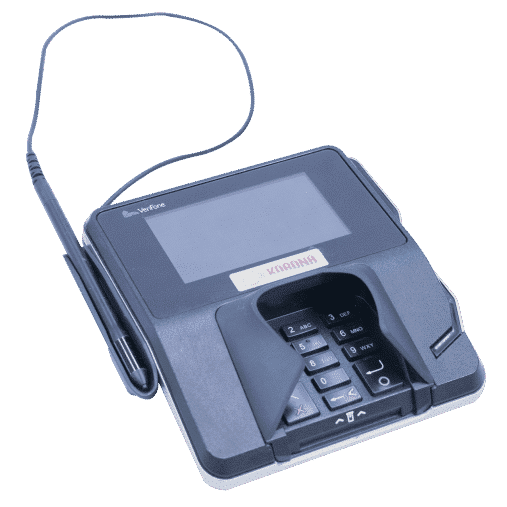
Wireless Credit Card Hardware
Wireless credit card hardware uses Bluetooth or Wi-Fi technology to transmit information from the device to the server from anywhere in your store.
While these devices offer more flexibility during checkout, they often still require a power source. To ensure convenience, keep them charged and connected to a strong wireless signal.
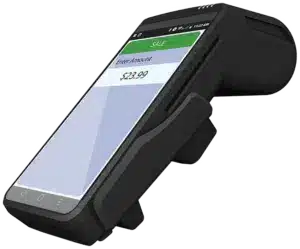
Debit/Credit Payment Terminals
Every credit card machine will accept either credit or debit cards. Similarly, the hardware needed to accept a swipe, chip, or tap is the same.
Still, merchants have the choice of running a transaction as either credit or debit at the terminal. Debit transactions are always cheaper, so some businesses may want to set up their system to only run PIN debit transactions to save on processing fees.
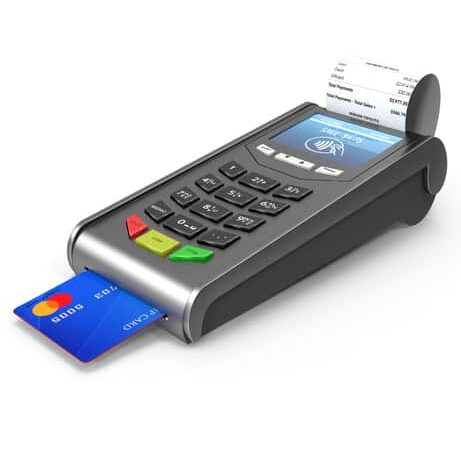
Modern Payment Terminals
The newest payment trends include cloud-connected smart terminals with touchscreen interfaces, app capabilities, and full POS integration.
These all-in-one solutions support tap, chip, and mobile wallet payments, streamlining the checkout experience.
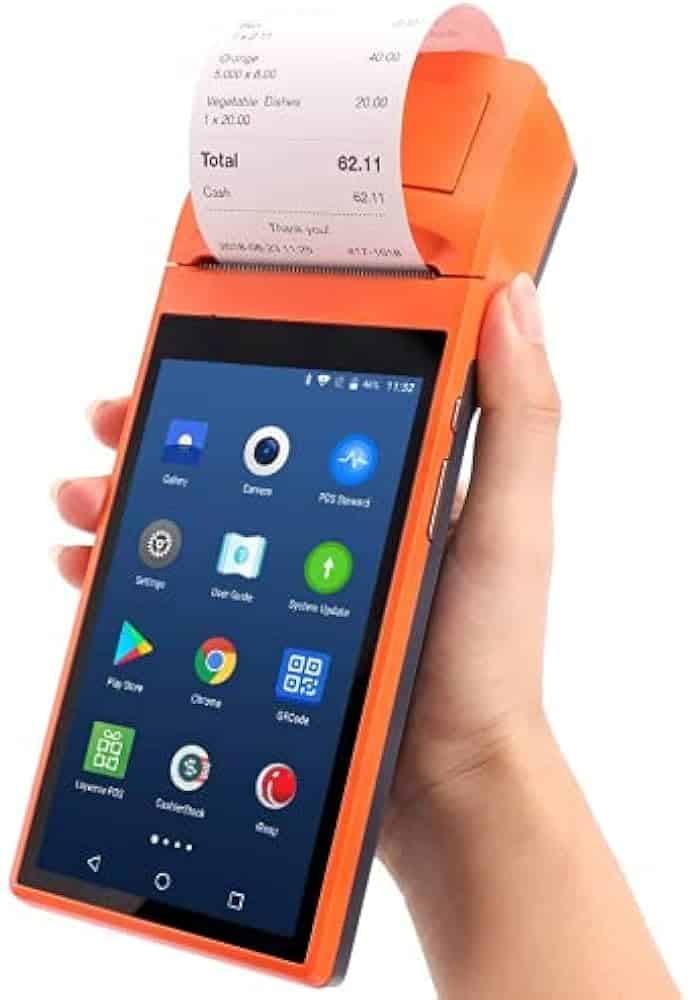
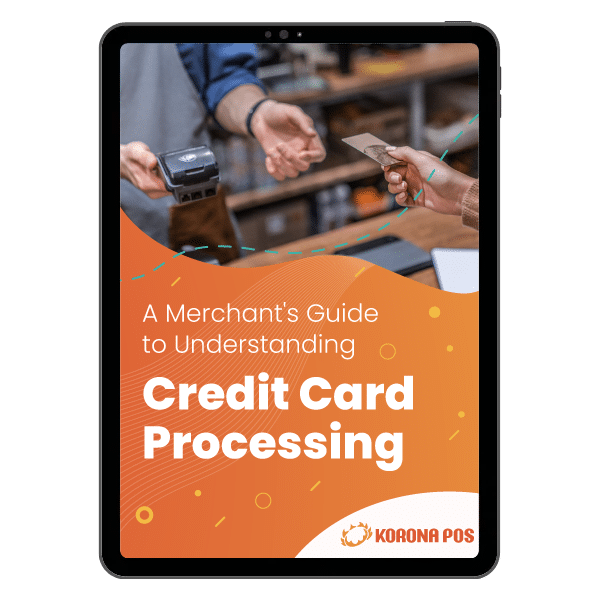
Learn more about how credit card processing works and save your business money with this free eGuide.
Common Credit Card Payment Terms and Definitions
Here are some key credit card payment terms every business owner should know:
- Payment Processor: A company or service that manages the transaction between a business and a customer’s financial institution
- Authorization: The initial step where a bank approves a transaction
- Batching: Grouping all daily transactions to submit for settlement
- Chargeback: A reversal of a credit card transaction by the cardholder
- EMV: Europay, Mastercard, and Visa—standards for chip card technology
- Merchant Statement: A monthly record of processed transactions and fees
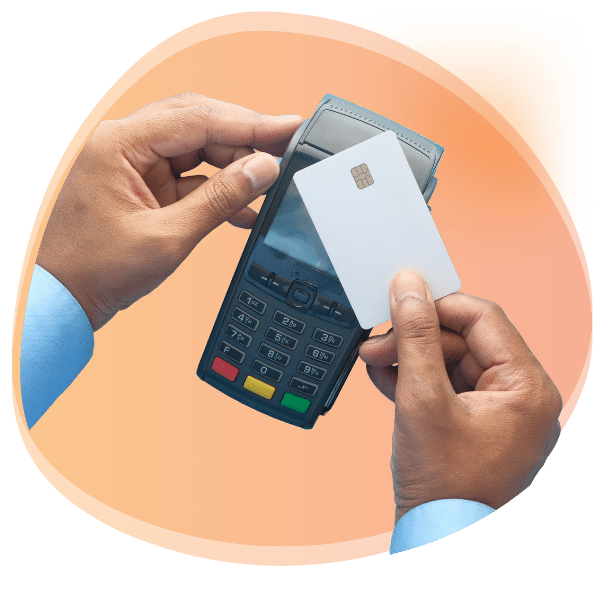
Are There Alternatives to Credit Card Hardware?
Yes, there are alternatives to credit card hardware. Some of the most common options include:
- Virtual terminals: These are browser-based tools that let merchants manually enter card details on a computer or tablet to process payments online—ideal for phone or invoice payments. There is no physical machine required.
- Mobile processing reader: Mobile readers consist of small plug-ins or Bluetooth card readers that connect to a smartphone or tablet. These are great for on-the-go vendors, food trucks, and pop-up shops.
- Mobile apps: Some payment providers offer app-only solutions where businesses can send payment links or use QR codes—these require no external reader, but limit functionality.
- eCommerce gateways: For online businesses, a secure payment gateway integrated into a website allows customers to check out without any physical hardware.
Despite these alternatives, credit card machines remain essential for most brick-and-mortar businesses because they offer faster transactions, greater reliability, and a more professional checkout experience that customers expect.
PRO TIP!
before selecting your setup, it’s worth exploring credit card processing companies that align with your business size, transaction volume, and POS integration needs.
What Should You Look for in a Credit/Debit Card Payment Machine?
Like POS hardware, many different credit and debit card payment machines are available, varying in price, design, and functionality. Here’s what to consider when choosing your own:
- Integration: Does the machine integrate with your POS system?
- Speed and reliability: How quickly can it process payments?
- Security: Is it PCI compliant and EMV-enabled?
- Fees and costs: What are your processing fees? How do these fit into your budget?
- Support and service: Is help available when you need it?

Get started with KORONA POS today!
Explore all the features that KORONA POS has to offer with an unlimited trial. And there’s no commitment or credit card required.
Learn More About KORONA’s Payment Hardware Options
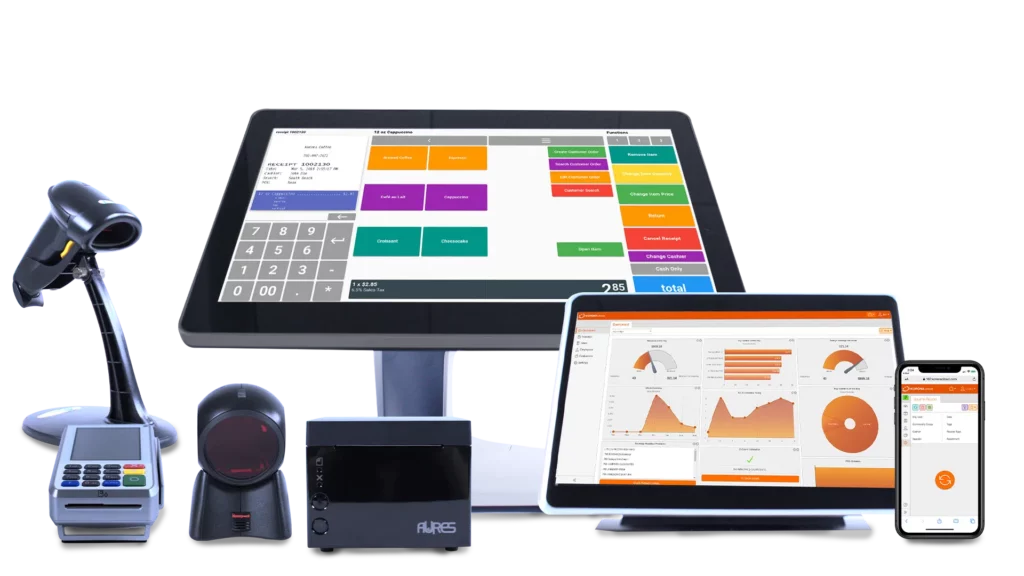
KORONA POS offers flexible, secure, and fully integrated credit card payment hardware for all business types, whether you need a traditional wired setup or a mobile solution. Our terminals ensure fast processing, simple setup, and seamless integration with our award-winning POS system. (Plus, we let you choose your processor, so you can move forward with the option that best fits your budget.)
Want to dive deeper into smarter, more affordable payment solutions? Explore KORONA POS’s credit card processing options or sign up for your free trial.

